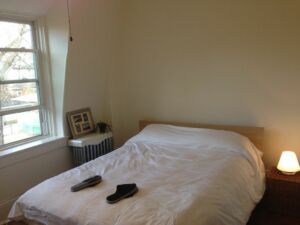News
SKAT looking into tax changes for Airbnb, Uber and other sharing economy services
This article is more than 9 years old.
Tax minister wants to accommodate new businesses, but income reporting rules could change

Currently the income of Danes who let their property on Airbnb is not automatically reported to SKAT (photo: Flickr/danebrian)
The tax authority SKAT is working on an analysis of taxation relating to the so-called sharing economy, which has seen remarkable growth in recent years owing to the popularity of companies such as the private property rental service Airbnb and the transport network Uber, Børsen reports.
READ MORE: Airbnb exploding in Denmark
Can contribute to society
Earlier this month Karsten Lauritzen, the tax minister, announced the initiative, acknowledging that new approaches may be necessary.
“The sharing economy’s business model is often built up in a completely different way from what we have traditionally seen. This can give challenges, but we shouldn’t be adamant in insisting that things be done in the normal way,” he said.
“I instead want to be open and ask if there is something we can do differently to accommodate the development of the sharing economy. My starting point is that the sector is set to contribute to Danish society just like all the others.”
Niels Sonne, a chartered accountant and tax advisor at the consultancy firm Deloitte, told Børsen that one of the challenges for the tax system is that the new services don’t have reporting obligations like conventional employers, so taxpayers themselves are responsible for reporting their income.
“It is now being discussed whether reporting obligations should be imposed for some of these services, which are becoming very popular and where everything runs over their websites and databases,” he said.










































